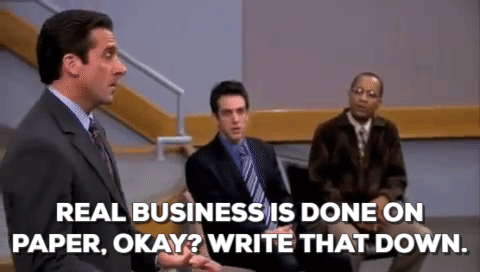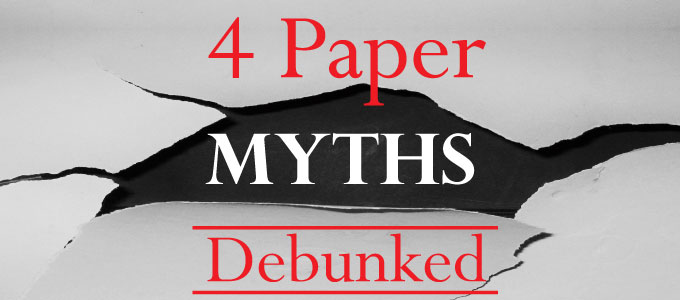
As Michael Scott of Dunder Mifflin puts it in TV sitcom The Office, real business is done on paper. But is paper bad for the environment? Do we need to “save the trees”? The answers lie in the most basic form of scientific truth. Here are the facts:
Myth: Paper is not as effective as Digital Media in education and learning.
Truth: Paper provides a stronger emotional connection than digital media (screens).
Students that read on paper score better on comprehension tests than those who read on screens. Students who take notes on paper learn more from lectures than those who take notes on a laptop, and those that doodle on paper perform better on memory tests than those who sit still. There is a connection between paper and learning that cannot be replaced with digital media.
Myth: Paper destroys forests.
Truth: Paper production helps sustain forest management.
In North America we grow more trees than we harvest. Even so, much of the wood from forest trees are used for lumber in housing and construction, not paper printing. Further, when there is a loss of market for wood products, there is a negative impact in forests due to the increased risk of forest loss. The paper production industry encourages landowners to manage their forestland rather than selling it for other uses, thus sustaining forest management.
Myth: Paper is wasteful and bad for the environment.
Truth: Paper is one of the most recycled products in the world with a 65% recovery rate in North America.
Paper is made from wood, one of the most natural products of the environment. This makes it easy to renew and recycle paper, increasing the life cycle and use of paper.
Myth: Electronic digital media is better for the environment.
Truth: This media also impacts the environment.
Electronic digital media has a short life cycle because many of the products used in electronics cannot be recycled the way that paper can. With low recycle rates, an increase in production and non-renewable products, electronic media negatively impacts the environment.
Are you ready to maximize your marketing with print? Call our office at 801-224-8666 or fill out the contact form below to get started. We’d love to help you!


